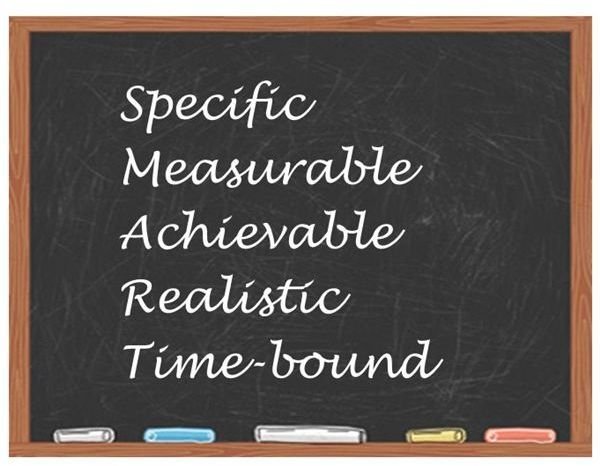Use Smart goals to make best use of your time with specific, measurable objectives
Introduction
Are you someone who always knows what you are doing and why? Or do you see work as a more creative process which you follow wherever it leads? This may seem attractive but is likely to waste your time and cost money. Decide where you want to go, then you can get creative about how you get there.People who work from home or in creative roles where they have high degrees of autonomy value their freedom: that’s often why they are in these roles in the first place.
However, without smart goals, that are Specific, Measurable, Achievable, Realistic and Time-bound you will not be able to to make best use of your time.
Why You Need To Have Clear Objectives
A SMART goal is an acronym which stands for Specific, Measurable, Achievable, Realistic and Time-bound. You will find some variations on what the letters stand for, but the principles are very much the same, and they are most noticeable when they are not there.
For example, many goals are not specific enough. Whilst “I want to earn a living wage whilst managing a family life at home” is a laudable goal, it is not very specific. If it is not specific enough, then you will not know if you are on target to achieve it, and you will either work too hard to make more money than you need at the expense of family life, or you may not earn enough to pay the bills.
A key part of having a specific goal is the ability to measure your progress towards achieving it. Supposing you need $2500 a month to pay the monthly bills, then you can measure your earnings as progress towards that income target.
Goals must be achievable and realistic. Is the money you need to earn possible to achieve within the period available? If you cannot earn around $100 a day from what you do, then you will not be able to reach your monthly target. Similarly, you need to be realistic about what can be achieved in your circumstances. Going to work in an office may seem to be inconvenient but it has many less distractions than home. How long is your working day at home, if you have to get the kids off to school, and then get all your work done before they come home again?
Finally, goals need to be time bound. You need to define the time period over which you want to achieve your goals.
Some Examples Of Effective Goals And Not Such Effective Goals
Supposing you want to make sure you respond to your customers better. Not so smart goals might include:
- Return customer calls
- Follow up customer enquiries
- Be polite to customers
Whereas smarter goals would be:
- Answer the telephone within 5 rings in 98% of cases
- Follow up all customer enquiries within 24 hours of receipt
- Sample 10% of customers to see how they rate your service from “Very good” to “Very poor”
For more about setting SMART goals for yourself try reading https://www.brighthub.com/office/home/articles/25589.aspx, or download a worksheet to help you from https://www.brighthubpm.com/templates-forms/78835-a-worksheet-for-preparing-smart-goals/
Convinced Yet?
SMART goals will save you time. They will stop you wasting time and ensure that your time is spent on the right things. The process of making your goals SMART will actually help you understand exactly what you are doing and is likely to improve the quality of your end product.
Be SMART - and spend additional time refining your goals to save much more time down the road.
